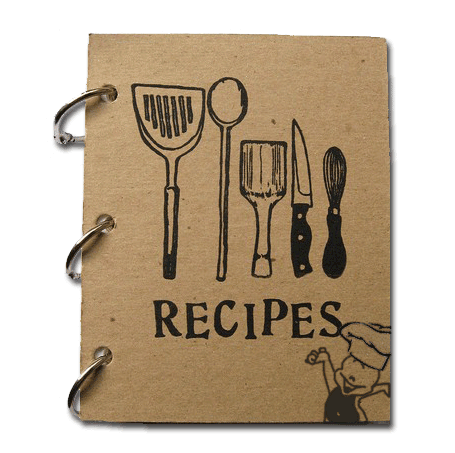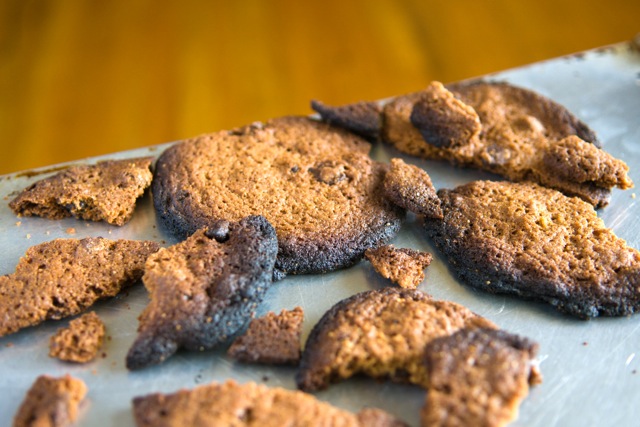What started off as talking supply brought us to an abyss and led us to context. Don’t forget, we’re here to piece together the S. puzzle. Yes, it’s a puzzle. Straight answers are hard to come by because there are few of them. Most answers are contextual answers. Not every puzzle piece fits in every [...]

What started off as talking supply brought us to an abyss and led us to context. Don’t forget, we’re here to piece together the S. puzzle. Yes, it’s a puzzle. Straight answers are hard to come by because there are few of them. Most answers are contextual answers. Not every puzzle piece fits in every opening.
Context forces us to zoom out and ask more questions. That’s why we need to talk about cookies. You probably aren’t seeing the body the way it needs to be seen to understand context. Don’t worry, it’s normal. I think I just found out about this yesterday myself.
But cookies? You know all about cookies. You can relates to cookies. I know I love cookies. (Oatmeal raisin, for the record. Those peanut butter ones at the top are my favorite of all time though.) So here’s how the cookies crumble for context.
The recipes and the chef's credibility
We’re talking about body composition: losing fat, gaining muscle. Ask ten people how to go about this “best,” and you’ll probably get ten different answers. Each of these answers are nothing more than recipes.
Recipes have been brewing since Eugen Sandow started asking people, “Dost thou even hoist?” Ironically enough, a lot of the recipes around in the early 1900’s are still around today. And they bake some pretty good things.

And that’s the thing. A lot of recipes work, assuming . . .
- the chef that created them isn’t lying,
- the context is consistent.
A recipe that calls for an electric mixer might not be the best choice if you only have a whisk. A recipe for a coal fire oven won’t be the same for an electric oven. You get the the idea, right? These are the crevices in the context conundrum.
The lessons from the recipes
We have a goal. We know what we want to bake, which is an important first step. So let’s say we want to create a chocolate chip cookie. The best chocolate chip cookie for our tastes. That’s going to be different than any sort of universal taste, mind you, just like it will be different than baking a different cookie.
Universal taste is taste of little effort—a taste of “good enough.” A taste to please as many people possible. It’s like those cookies that come pre-formed in the aluminum cans. Yeah they’re cookies, but they don’t come close to from-scratch homemade cookies.
Know where you’re going. Know it’s not average—it’s not where the masses are. You are not a normal “cookie.” Building muscle and losing fat is a step beyond preventing metabolic syndrome and just wanting to be healthy enough to not be killed by self created disease.
So you know the cookie you want to make. Your ingredients list is rather set. This is your context. You can make chocolate chip cookies with “x” ingredients in “y” kitchen with “z” tools. Your ingredients list is vast. Access to feedback, equipment available, time, motivation, genetics . . . all of these things form context. For best results, you should find a recipe that comes as close to your list as possible—even down to the brand name of the ingredients. It will never be that exact; it just needs to be exact as possible. And then that’s the recipe you work with. Someone else has told you, “With these ingredients, this is how I bake my cookies. If you like the taste, here it is.”

Research studies are informative and nice, but it’s tough to find out how “close” you are to the people the results came from. (Unless the study is massive and well orchestrated.) Instead, pick someone that has started in a similar spot (ie: skinny-fat, not skinny — whatever) and has done what you want to do. As long as they aren’t lying or recollecting information wrong, that’s going to be a decent recipe to work from. Even better, fit as many contextual variables as possible.
No matter what kind of broscience or fairy tale goes on behind the rationale of something working, the fact is that the recipe does bake the cookie. If you believe that faeries pop out of the sugar and sprinkle their seed over the cookie to make them sweet, it might not be true, but the idea of sugar making the cookie sweet still “works.” The key
After the ingredients and recipe come the baker. These is the biggest contextual question mark for two reasons. The recipe is nice. With the right hands, it might make one awesome cookie. But that doesn’t mean you’re going to make that same awesome cookie.
First, there’s the technical stuff. There’s what order the ingredients go into the bowl, how long you bake it for, the temperature of the oven, whether or not you’re patient enough to allow the oven to preheat . . .
Just because you have the recipe doesn’t mean you’re home free. Exercises listed on a sheet of paper don't bake cookies. You bake cookies.
Second, someone with a lot of experience has a level of sensation that you don’t as a beginner. This is why good bakers aren't anal about measuring things. And this is exactly why you should be more anal with these things. It’s more than following the rules, as the rules often say things you probably don’t understand. “Cream” ingredients together. Mix until “fluffy.” Understanding these things come with time.
Most people obsess over the mundane details. Rest between sets, lifting tempo — these things are often less important than sensation and sight beyond sight. Don’t undervalue sensation. Sometimes it’s less about the program and more about the sensation behind the execution. Sometimes it’s about doing something over and over and over until you develop a certain understanding. Don’t judge on first go. Give yourself some time to work things out. To understand.
You can try to find the best chocolate chip cookie recipe in the world, but that won’t help much if you can’t cook. This is what most people do. They get a recipe, cook a batch, taste the result, and then make their decision. They end up blaming recipes instead of themselves. Sometimes you have to understand: you’re the one doing the baking. Maybe it’s you, not the recipe. Or maybe you picked a recipe that doesn’t match the context.

Don’t assume linearity. It’s easy to judge something quickly. Go low carb for a week and hate it. Well yeah, if you suck at making cookies the immediate batches are going to suck. This is why it's tough to say much of anything without a genuine go, and why I always trust those that pour emotion into something and breath it and enjoy it.
You can burn a pizza 24235 times with the same recipe but sometimes it just takes learning to not burn it the 24236 time. A lot of the times, we quit on the 24234th try. In a never ending quest for immediate results, I think we often throw useful things aside without honest work, time, and effort for a realistic opinion.
After you start baking, don't just taste. Develop taste. Develop a taste that knows the batter was undermixed vs. overmixed, and expect to make adjustments. Part of this process is knowing that the recipe on paper from the start isn’t going to be your recipe forever. You can change it and should change it as you grow. You might even do some things most would consider insane (unhealthy) in the name of creating a better cookie in the long run. It’s all a part of the progress. You can stop using the sugar for a while to better your understanding how the other ingredients taste without it. Yeah, these cookies won't be your best batches, but if it makes you better in the long run then it's worth it.
Sometimes experimenting and eliminating and adding is important for your own understanding. Sure someone can tell you what they think might happen, but you never know until you give it a go yourself and experience it. More importantly, you might know the result will be terrible, but you might also know the learning that will come out of it will all be worth it. So say even if you think that low carbohydrate, high repetition training, -whatever- isn't “good,” that might be all the reason to go out there and do it.
Now, experimenting is scary. You should probably only go there if you're consistently baking a good batch of cookies. So if you're just starting out and making that happen, don't let anyone jack with your process.
A lot of people have future worry. Some people email me and say, “Things are great. I'm gaining muscle, losing fat, but I've been hearing about ‘x' and ‘y' and I'm wondering if I should blah blah blah . . .”
My reply is usually, “If you're gaining muscle or losing fat, great. If you're doing both simultaneously, you should probably be coaching me. But on a more relevant note: keep going until something bad happens. Don't worry about the future until it's the past.”
And lastly I should probably say that someone might have the same roundabout recipe as you yet there's one drastic ingredient swap. Maybe more butter, less sugar. That doesn't make them wrong or right as long as they're baking a cookie they like eating.
I don't know a lot of things, but if there's one thing I do know it's that there will always be an argument over which momma' makes the best stuffing. You know better. Don't get caught up in that. Try some thing, lean towards the one that suits your tastes, and then keep getting better. Zone things out until you're baking some good stuff. When you begin to do that consistently, keep your mind open to some experimentation. You can afford it then because you always have a fail safe.
This is the insulting part
Here’s the thing. If I told you that ingredients, utensils, electronics, and a host of other factors effect how a cookie is made, you'd probably believe me. You'd also believe me if I told you a baker of ten years could use the same recipe and bake a cookie of infinite yums better than someone that's never baked in their life — a matter that extends beyond any secret recipe or even following directions. There's a certain sight beyond sight at work.
And yet here we are trying to lose fat and gain muscle. Our body is more complex than anyone on earth can fathom at this point. We still don't full understand how it all works. Let's just say there's a little bit more going on than flour, sugar, butter, salt, and chocolate chips.
When you ask if an extra teaspoon of sugar will make your cookies taste better, the real answer depends on whether or not you have the other 90% of the recipe and cooking process in place. This is why questions like, “How many reps? How many sets? How long should I rest?” make the back of most coaches' heads explode.
Is there a “best?”
Depends.
Is there anything universally bad?
Maybe. But even some people like burnt cookies. (I’m one of them. Only a slight burnt crisp though.)
So you might be wondering how I get off writing anything about anything. The real answer is because it's the Internet. The answer I tell myself to help me sleep at night is that there are some things that are safe to assume. You're probably going to need flour, sugar, butter, and a little bit of salt in order to make a cookie.
Beyond that, I don't know much in the world of absolutes. And I think it's OK to not know.
I just know the recipe that's worked for me, and I know that learning how to bake is harder than getting a recipe.
I can bake cookies. I can’t tell you how it works. I don't how the sugar spreads evenly throughout each bite of the cookie. I don't know why they rise when they're baked. I don't know why salt makes something sweet taste better. I just know that when you throw it all in the oven a certain way, things happen.
What I can tell you, based on my experience, is that those with the certain context tend to do very well with a certain recipe.* More importantly, I can tell you how to sequentially expand your baking skills over time and not become one of those people that skip from recipe to recipe that never take the time to look within.
Remember, you're the one making the cookies. Make sure the recipe is good, and make sure the recipe is for you. Cookies are only created with context. Why should the body be any different?
+++++
*This is neglecting the fact that I did happen to work with Division I college athletes in a variety of sports for a few years. (And some high school kids. And some folk via the Interweb.) Nevertheless, a lot of what I write here comes from my own experiences and my own results.
Photo Credit: recipe book, burnt cookies